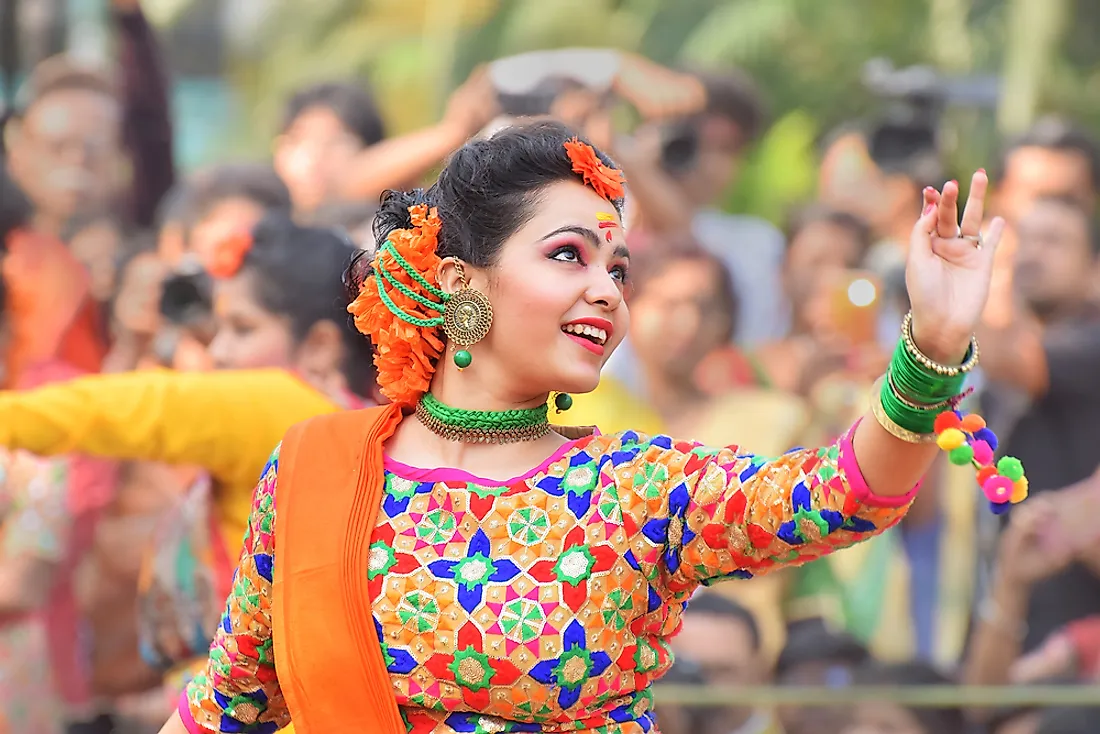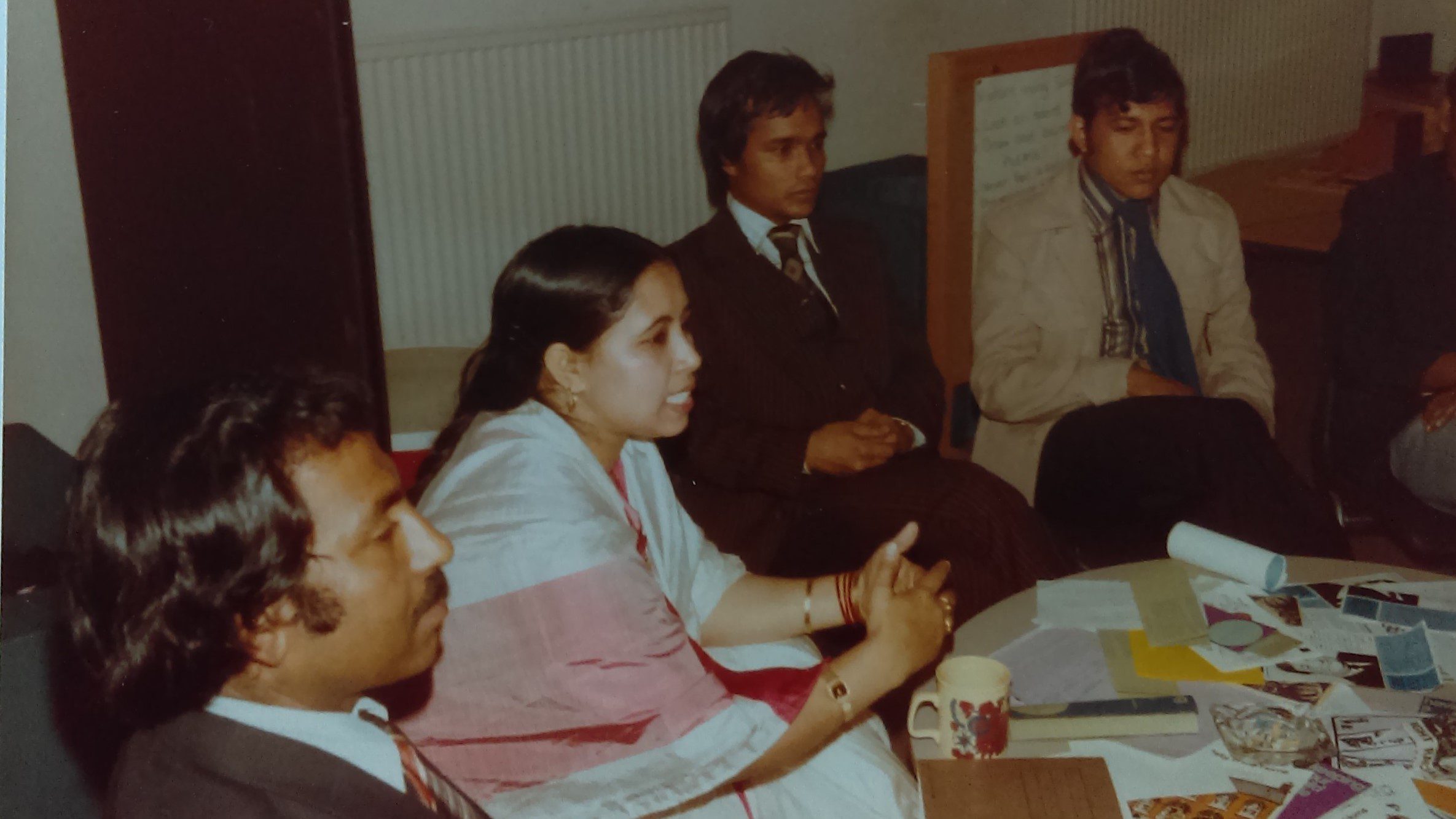

16th-century historian Abu'l-Fazl ibn Mubarak mentions in his ʿAin-i-Akbarī that the addition of the suffix "al" came from the fact that the ancient rajahs of the land raised mounds of earth 10 feet high and 20 in breadth in lowlands at the foot of the hills which were called "al". The records of Rajendra Chola I of the Chola dynasty, who invaded Bengal in the 11th century, speak of Govindachandra as the ruler of Vaṅgāladeśa (a Sanskrit cognate to the word Bangladesh, which was historically a synonymous endonym of Bengal). The land of Vaṅga later came to be known as Vaṅgāla ( Bôngal) and its earliest reference is in the Nesari plates (805 CE) of Govinda III which speak of Dharmapāla as its king. In contrast, the Mahabharata, Puranas and the Harivamsha state that Vaṅga was the founder of the Vaṅga Kingdom and one of the adopted sons of King Vali. Early Abrahamic genealogists had suggested that this man was Bang, a son of Hind who was the son of Ham (son of Noah). The historic land of Vaṅga ( bôngô in Bengali), situated in present-day Barisal, is considered by early historians of the Abrahamic and Dharmic traditions to have originated from a man who had settled in the area though it is often dismissed as legend.

Vedic texts such as the Mahābhārata makes mention of the Puṇḍra people. In ancient times, the people of this region identified themselves with respect to these divisions. The most prominent of these were Vaṅga (from which Bangālah is thought to ultimately derive from) in the south, Rāṛha in the west, Puṇḍravardhana and Varendra in the north, and Samataṭa and Harikela in the east. Prior to Muslim expansion, there was no unitary territory by this name as the region was instead divided into numerous geopolitical divisions. Their ethnonym, Bangali, along with the native name of the language and region Bangla, are both derived from Bangālah, the Persian word for the region. The Indo-Aryan Bengalis are ethnically differentiated from the non-Indo-Aryan tribes inhabiting Bengal. The term Bengali is generally used to refer to someone whose linguistic, cultural or ancestral origins are from Bengal. The ancient political divisions of the Ganges delta. Like every large culture group in history, Bengalis have greatly influenced and contributed to diverse fields, notably the arts and architecture, language, folklore, literature, politics, military, business, science and technology. There also exist small numbers of Bengali Christians, a large number of whom are descendants of Portuguese voyagers, as well as Bengali Buddhists, the bulk of whom belong to the Bengali-speaking Baruas in Chittagong and Rakhine (who should not be confused with other Buddhists of Bangladesh that belong to different ethnic groups).

Bengali Hindus, who live primarily in West Bengal, Tripura, Assam's Barak Valley, and Andaman and Nicobar Islands, generally follow Shaktism or Vaishnavism, in addition to worshipping regional deities. Bengali Muslims, who live mainly in Bangladesh, primarily belong to the Sunni denomination. Today, about 68% are adherents of Islam with a large Hindu minority and sizable communities of Christians and Buddhists. The global Bengali diaspora (Bangladeshi Bengalis and Indian Bengalis) have well-established communities in the Middle East, Pakistan, Myanmar, the United Kingdom, the United States, Malaysia, Italy, Singapore, Maldives, Canada, Australia, Japan and South Korea.īengalis are a diverse group in terms of religious affiliations and practices. Most of them speak Bengali, a language from the Indo-Aryan language family.Īpart from Bangladesh and the Indian states of West Bengal, Tripura, Manipur, and Assam's Barak Valley, Bengali-majority populations also reside in India's union territory of Andaman and Nicobar Islands, with significant populations in the Indian states of Arunachal Pradesh, Delhi, Odisha, Chhattisgarh, Jharkhand, Meghalaya, Mizoram, Nagaland and Uttarakhand as well as Nepal's Province No.

The native population is divided between the independent country Bangladesh and the Indian states of West Bengal, Tripura, Assam's Barak Valley and parts of Manipur. The Bengali people ( Bengali: বাঙ্গালী/বাঙালি ( listen)), also known as Bangalee, are an Indo-Aryan ethnolinguistic group originating from and culturally affiliated with the Bengal region of South Asia.


 0 kommentar(er)
0 kommentar(er)
